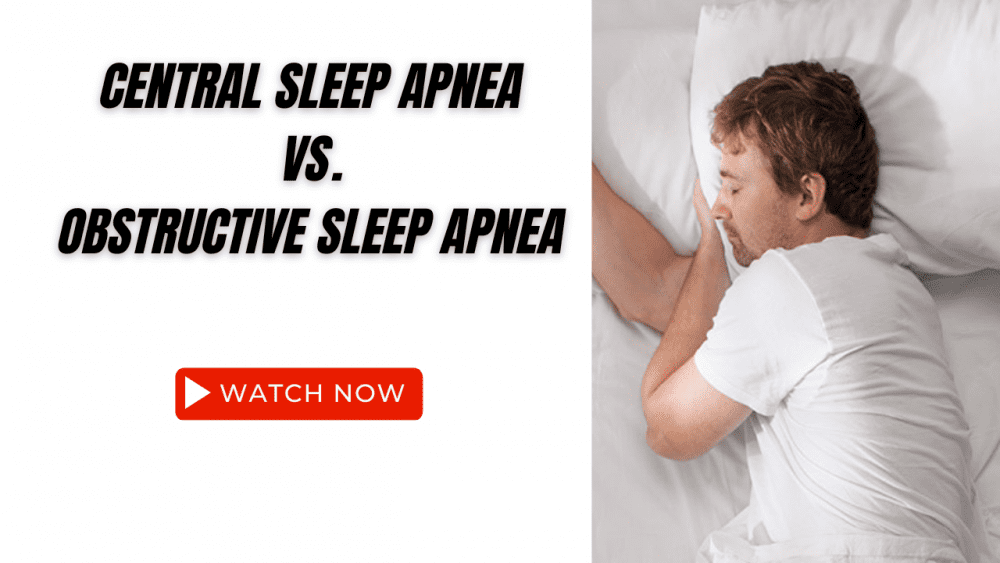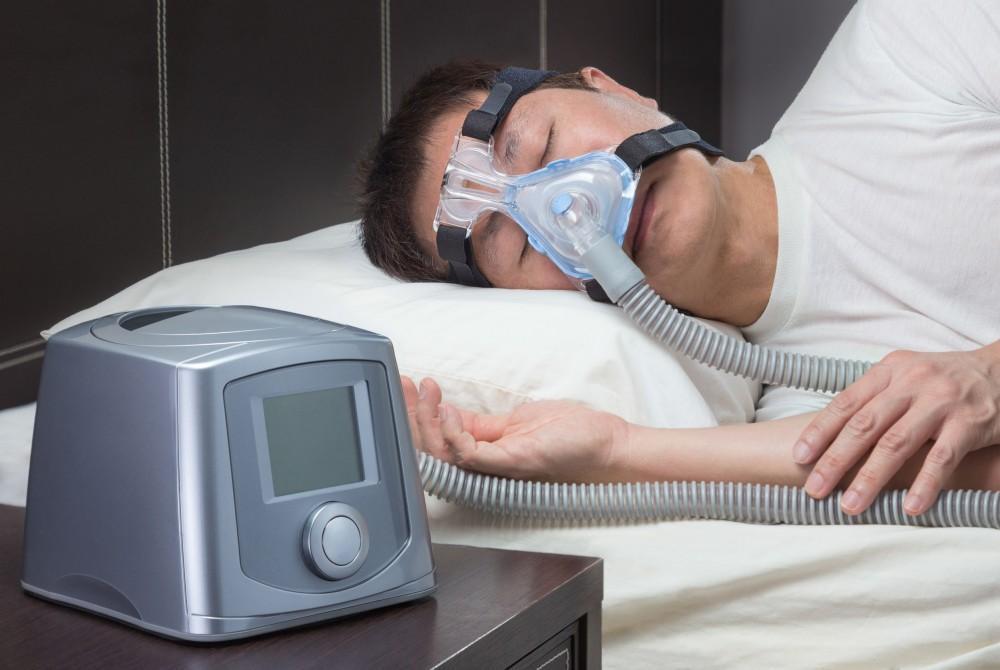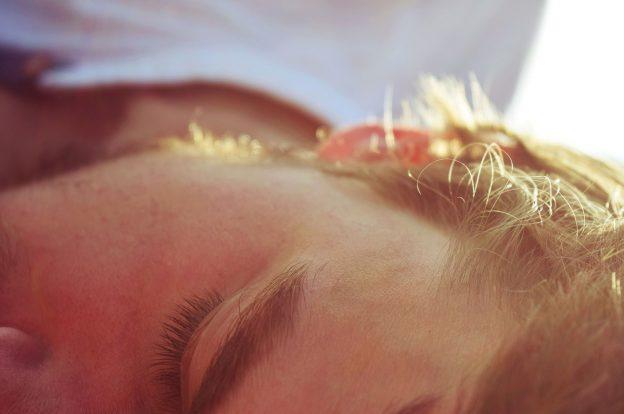
Why you can’t sleep in cold weather – and how to fix it

Cold weather can bring insomnia with it — these winter sleep tips will have you sleeping and feeling better in no time.
Yesterday marked the first day of winter, an occasion that’s typically met with very little fanfare. After all, either you’re from somewhere that’s already been buried under snow and hitting record lows for weeks, or you’re a Texan.
But even we Texans have had our share of frigid weather, and more is on the horizon. And no matter where you live, when the temperature dips, it’s tougher to get a good night’s rest. We’ll tell you why that is, why good sleep is more important than ever in the winter months, and give you some winter sleep tips so you can get back on track.
Dry weather is a sleep health nightmare
Winter weather is dry weather – that’s no secret. But even the loveliest snowy landscape can be a harsh environment for your skin, eyes, and the delicate mucous membranes that line your air passages. That means even the most silent of nights can be an awfully uncomfortable one; dry skin becomes chafed and raw, chapped lips burn all night, and your sinuses can feel downright scorched.
It’s tough to sleep when you’re uncomfortable and in pain!
More: Meet the pillow of your dreams
The solution: Just add water.
Well, not just, but it’s a great place to start. Most of us don’t drink as much water as we should anyway, but in the winter months, when you aren’t losing moisture through your skin it can be even harder to keep track of your intake. That ultimately ends up impacting everything: your sinuses and throat dry out; any congestion you may already have in your chest and nose turns to cement — even your eyes can suffer.
Make friends with a reusable water bottle, keep it filled, and never let it leave your side. After that, tackle your issues one-by-one:
- Dry skin can be soothed with a thick, fragrance-free moisturizer.
- Sinuses can be rinsed with a gentle saline solution.
- If eye drops meant to increase tear production aren’t doing the trick, try an eye shield like EyeEco’s to keep your peepers moist, soothed, and protected all night long. You can even add a few drops of water to each eye cup before you put the eye shield on to boost your protection against dry eye due to the weather, CPAP mask leaks, or Lagophthalmos.
More: Safe Driving Tips to Get You Home For the Holidays (INFOGRAPHIC)
In the fight against cold, heat conquers sleep
Thank goodness for central heat and air, right? Thanks, technology! The only problem is that as the temperature outside plummets and the temperature inside skyrockets with the touch of a button, we subject ourselves to less-than-ideal sleep environments.
Body temperature drops during sleep and rises during wakeful activity, and you may have noticed that sleep comes easiest in cooler environments – taking a cool shower or sleeping with your feet outside of the covers are both little tricks to help usher sleep in during the rest of the year. But in winter the last thing on our minds is a cool shower, and good luck to anyone who touches our wool socks.
Plus, If you sleep anywhere but the ground floor of a building, your thermostat can turn your bedroom into the Sahara, since heat rises even in the most well-insulated home. Add that to the often dry quality of forced air, and getting any kind of prolonged, restful sleep can feel impossible.
Find out how to beat this and other causes of seasonal insomnia with more winter sleep tips on page 2.
The solution: Turn down the heat, and turn up the humidifier.
You don’t need to sleep in a tank top and shorts, but try putting the polar-fleece lined pajamas away, peeling your socks off, and using a numb, shivering finger to reduce the indoor heat by a degree or two on the thermostat.
Battle dry forced air with a cool-mist humidifier as well, but skip the fancy mentholated vapors and pads – they can actually be counterintuitive if you’re particularly sensitive.
More: 7 Things You Need To Know About Managing Sleep Apnea On The Go (CHECKLIST)
The winter blues aren’t actually blue
They’re gray, thanks to an overcast sky and months of de-icing salt over plowed snow. Seasonal Affective Disorder is a very real thing, but unlike the other items on this list, it won’t necessarily keep you up at night. Instead, it may cause you to nod off in the middle of the day, throwing your sleep schedule out of whack and exacerbating the dysthymia that can attend winter to boot.
The winter blues can also be pitch black – those long nights and dark mornings confuse Circadian rhythms and make it harder and harder to leave our warm beds. The result? Later bedtimes and abused snooze buttons, both of which spell trouble for sleep health.
The solution: Let there be light!
It’s worth it to invest in natural lighting for your house and especially your bedroom that can be operated with a simple flick of a switch or button press. Find lightbulbs that mimic the rays of the sun and make use of them: an alarm clock that uses light and noise to wake you up can trick your rhythms into staying on track, while generous light in high traffic rooms can go a long way in battling those winter blues.
Cold and flu season becomes toss and turn season
It’s no secret that our immune systems take a beating in the winter months. Between plane rides with the contagious, increased time inside, and – surprise! – a lack of sleep, if we make it to March unscathed by upper respiratory bugs and flu symptoms, that’s a true Christmas miracle. Coughing fits, congestion, and aches make sleep nearly impossible right when we need it most.
The solution: An ounce of prevention.
Resting up before you’re under the weather is a proven way to stave off a nasty infection because our immune systems rely on sleep to stay strong. By thinking of sleep in more concrete terms – say, likening your sleep habits to your eating and exercise habits – you can set a schedule and maintain sleep hygiene all year long to stay one step ahead of nasty viral and bacterial infections. This list of winter sleep tips is a great place to start.
The winter months are packed with travel, stress, scheduling obstacles, and cup after cup of sleep-wrecking coffee. And while it’s all worth it in the end – whether you’re celebrating a major holiday or reflecting on the waning year with your loved ones nearby – it also creates a paradox. To stay on top of your health and sanity during this lovely, hectic time, it’s more important than ever to tend to your sleep health but seemingly harder than ever to do so, especially when wintry weather seems to be conspiring against your best intentions.
Fortunately, you’re now equipped to stay happy and healthy in a season that celebrates joy and wellness. Here at Dallas Sleep, we really do believe that when you sleep better, you feel better, and that’s what we wish for all of our patients, community members, and friends this winter and all year long.

Happy Holidays, everyone! We’ll see you next year!
You Might Also Enjoy...


Dr. Kakar Products

Central apnea vs. Obstructive sleep apnea

Warning to Patients about Ozone Cleaners

Ways to Help You Keep Hope Alive

